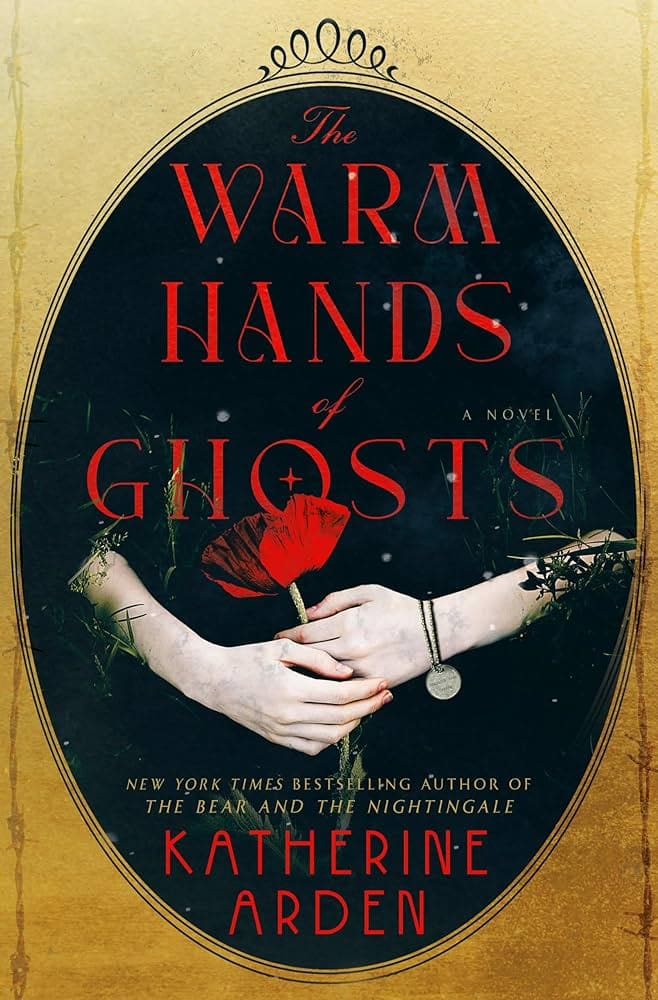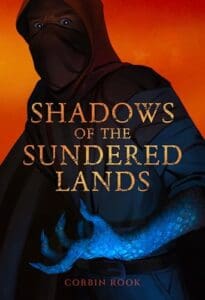
Synopsis:
January 1918. Laura Iven was a revered field nurse until she was wounded and discharged from the medical corps, leaving behind a brother still fighting in Flanders. Now home in Halifax, Canada, she receives word of Freddie’s death in combat, along with his personal effects—but something doesn’t make sense. Determined to uncover the truth, Laura returns to Belgium as a volunteer at a private hospital. Soon after arriving, she hears whispers about haunted trenches, and a strange hotelier whose wine gives soldiers the gift of oblivion. Could Freddie have escaped the battlefield, only to fall prey to something—or someone—else?
November 1917. Freddie Iven awakens after an explosion to find himself trapped in an overturned pillbox with a wounded enemy soldier, a German by the name of Hans Winter. Against all odds, the two men form an alliance and succeed in clawing their way out. Unable to bear the thought of returning to the killing fields, especially on opposite sides, they take refuge with a mysterious man who seems to have the power to make the hellscape of the trenches disappear.
As shells rain down on Flanders, and ghosts move among those yet living, Laura’s and Freddie’s deepest traumas are reawakened. Now they must decide whether their world is worth salvaging—or better left behind entirely.
Review:
Hello again dear reader or listener, tis I, the emotional wreck.
Congratulations Mrs. Arden, you managed exactly what you were hoping for. This book now haunts me. (If you’re curious I’m referring to the author’s note she’s left on the Goodreads page of the book – deeply rec reading it).
But before I try to explain, a big thank you to Ms. Folds with Random House for offering an eARC of this novel. My thoughts remain honest, if a little overwhelmed.
I don’t know what kind of otherworldly sorcery Arden imbues her words with to make them feel so visceral, poignant, truthful, beautiful and powerful. I’ve rarely felt with the depth that I have through her writing, even when it’s over extremely simple or seemingly mundane things. But I do know she’ll keep having a space on my shelves any time she writes anything. This latest novel merely cemented that.
Generally, I try to review with as few spoilers as possible, if any at all, and this is one of those books that I feel you really need to go into blind. One day I might just write a spoiler filled commentary, if nothing else to get the words out because I need to. However, I do think it’s important to know one thing.
This book is primarily historical fiction, with some supernatural elements, so do not go into it expecting some big supernatural showdown or magical fights. For those who are familiar with Arden’s Winternight Trilogy, I would say that Ghosts is almost half as fantastical. Maybe even a third actually. And it works perfectly, as frankly making it more of a fantasy with the World War just as an aesthetic backdrop would be a disservice to the memories Arden drew from.
Arden tells the story of Canadian siblings Laura and Wilfred Iven, a nurse and a soldier at the Belgian front between the winter of 1917 and Spring of 1918. Their pov chapters are slightly out of sync meaning Laura is shown in the future compared to Wilfred. As such we have one of my favorite narrative devices of all time, which is the weaving of two timelines in ways that make for emotional and deeply tragic near misses between two people trying to find their way back to one another. And we don’t know until the end whether they actually do. How many times have you found yourself watching or reading one such scene and started yelling at your screen or felt your chest tighten? For me, it’s every. Single. time. The author also touches on the Halifax explosion in 1917, a disaster I had distantly heard of in the past but never truly learned about until reading this book.
Arden managed to encapsulate in one book the sheer absurdity, horror, pain, hypocrisy, and anger that resulted from the first World War and the loss of an entire generation from the western world. The villain in this story is not who you think, not really. It’s the very thing that pushed people such as the characters in the novel to seek oblivion at the hands of the mysterious hotelier. It must be said however that the nuance in the hotelier’s character and the distribution of hints as to his real identity is truly impeccable, regardless of whether you clock it right away or you realize it fully in the author’s afterword. The effect is the same. Because like I said, his role as the villain and his true identity pale in comparison to the man-made horrors of the War. And that I believe is the whole point this novel is trying to make. But in between the harshness, the author also makes spaces for the little moments of joy, for the small but pure beauties characters and readers need to hold on and get through everything.
Another thing I loved in this book is the way Arden wrote the hotelier. She had shown this previously with Morozko in Winternight, but this author has a way of writing timeless beings that not only make perfect sense but they are not sugarcoated either. They are never immortal/timeless beings behaving like humans for instance, and I know I may not be explaining it well but this is the kind of immortal done right that I always crave. We discount how much of our being/life/culture is defined by the very fact that our time is finite, whereas Arden is aware and writes this type of character accordingly.
He whispered, “Winter said there’s ghosts all round you.” Faland snorted. “When you swim in the ocean there’s water all round you, but no one mentions it.”
It is also clear how well researched this story was, and personal knowledge aside, Arden brings the War to life in ways that are both authentic and oh so specific so as to give you the kind of full immersion that doesn’t leave you unaffected. It was really easy for me to picture the scenes she described, mainly because I live in Italy and my father puts history buffs to shame. That means I’ve been exposed to monuments, remembrance ceremonies, and countless documentaries for as long as I can remember. Arden’s words however made me feel in ways I don’t do often. There’s something different you can’t quite put into words, between listening to sometimes sterile documentaries, and reading a story, however fictional, informed by first-hand accounts and written the way Arden does. Moreover, I found her portrayal of complex trauma, shellshock, or PTSD, both respectful and honest, especially for how it was understood in that first war that irrevocably changed the western world in so many ways.
I said at the start that maybe Arden has her own kind of sorcery imbued in her work, but the true magic is in her not relying on the supernatural at all. She writes deeply emotional and realistic characters who struggle with all their might to hang on to what little shred of sanity and hope they have left. And she does so by showing truly everything. Every single one of the good but also the ugly emotions and thoughts that make us who we are. For the longest time you cannot be certain whether the ghosts haunting the characters are “real” or figments of broken minds, and at the end of the day it doesn’t even matter because the result is the same.
Her story was about loss and war and human nature, and trying to heal after going through an actual end of the world. It was deeply beautiful as it was harrowingly painful, in what I can only describe as the way you fully grasp your surroundings in the first quiet moments after a rush of adrenaline or intense fear. It was simplicity after chaos, that feeling of sound returning slowly in stages after something sudden and loud caused your ears to ring.
She didn’t look at him. No, she wanted to say. No, it’s not real, whatever this is. Good things don’t grow in this rotten earth.
I simply love this book. I loved the story, that way the plot unfolds expertly and through different views. I didn’t feel like the strength of emotion shown by characters, even in a short time, was ever out of place because that right there is the only way a person can survive through events like that. And by the end of it all, by the satisfying wrap up of everything, however bittersweet – because no story about the wars can have a happy ending the way we commonly think of it given everything that has been lost in the process – I was thinking back to everything I know of this moment in history often eclipsed by its more discussed second act, and while I did, I read Arden’s afterword, and it finally broke me.
I sat in bed crying at 4 am. Not because of the plot itself but for what it meant, for the messy depth of emotion it brought forth in me specifically with how I move through life and how certain things affect me. It won’t mean the same to everyone and that’s fine, I’m pretty sure you could closely relate the reactions to this book with each reader’s cultural/historical background which makes perfect sense. But it’s a story that needed to be written and demands to be read.
One thing is for sure, Arden will make you feel for and through her broken characters. It will not be pretty and there won’t be the generally accepted heroics or tropes. It will be unashamedly human.
And that, is why it is extraordinary.
Until next time,
Eleni A. E.









Leave a Reply